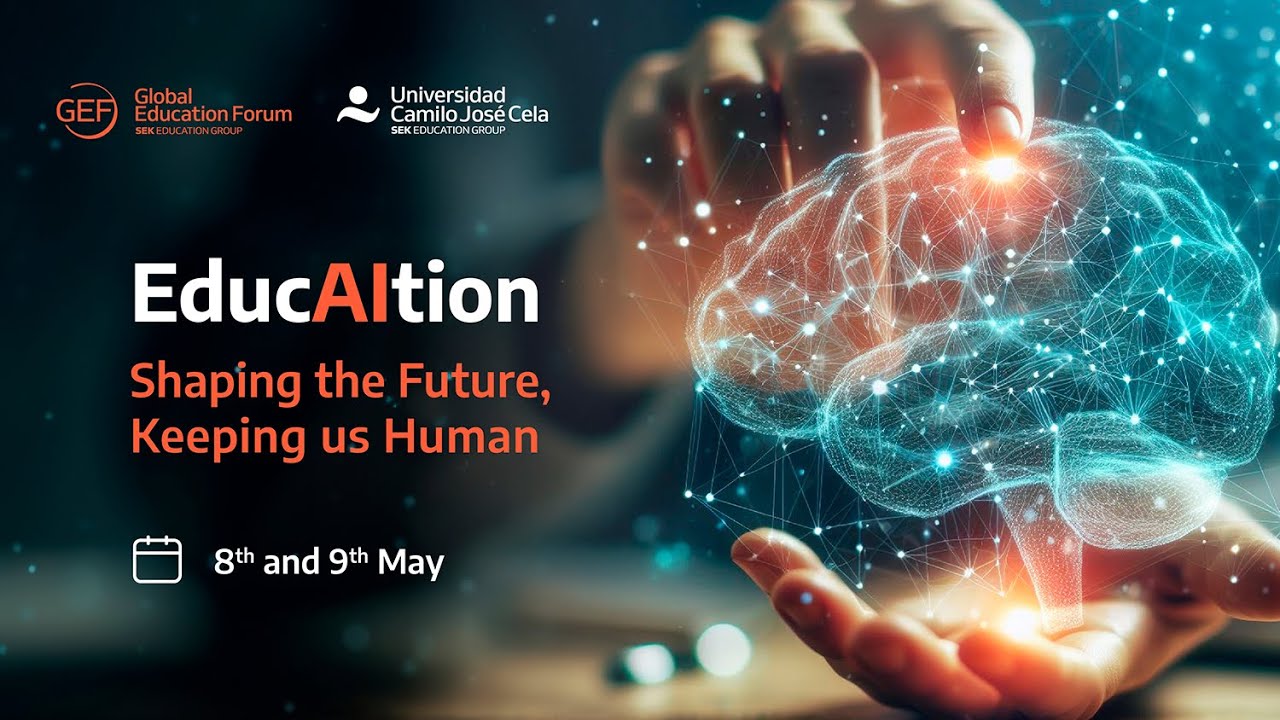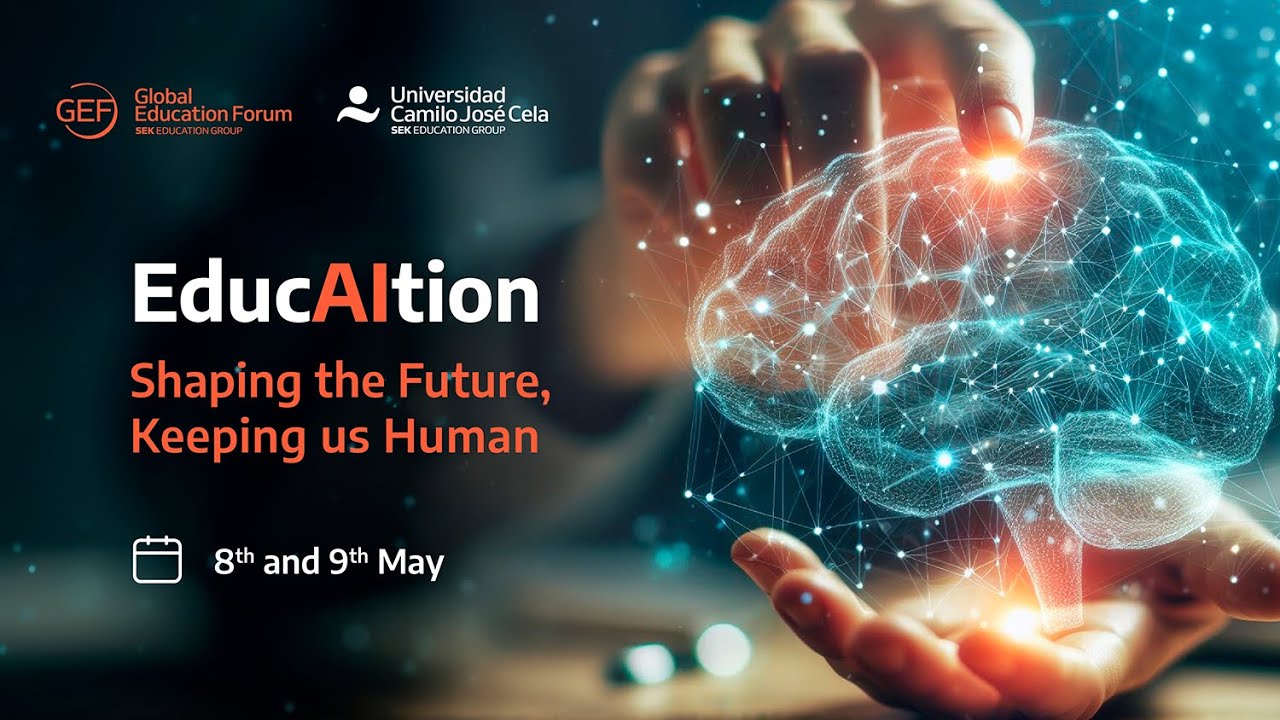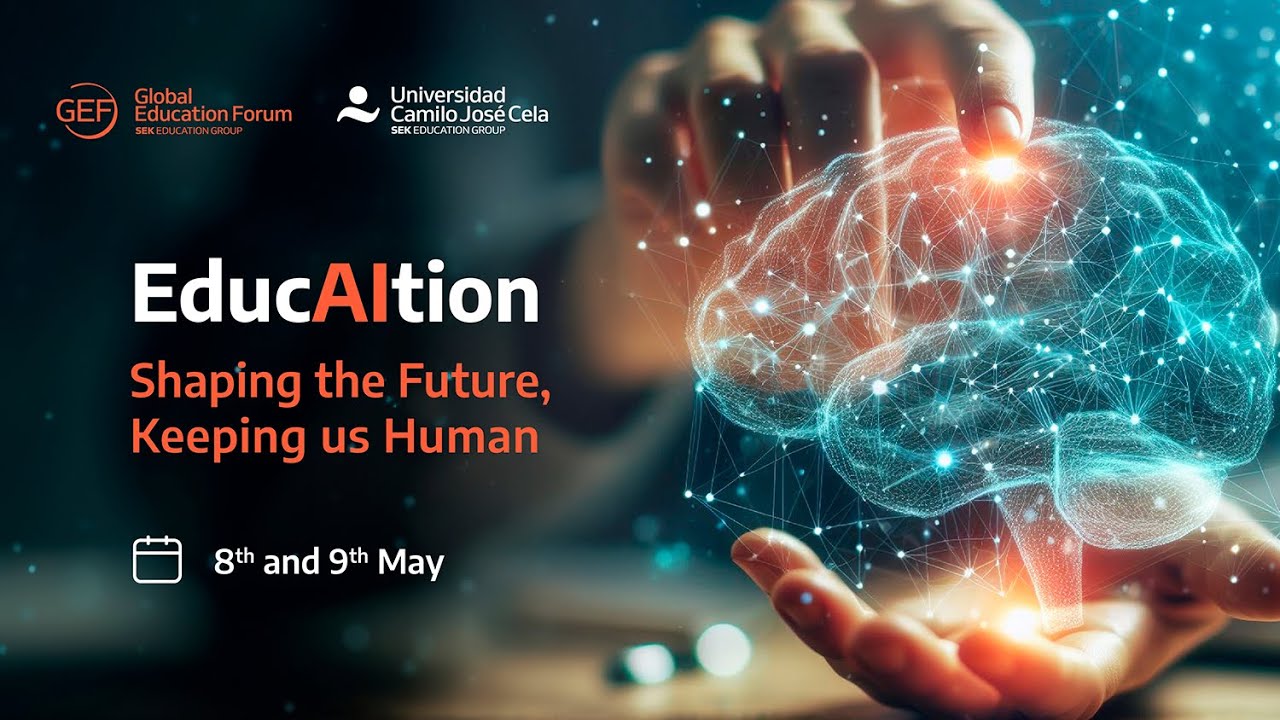Perspective: AI in Education | 20 April, 2023
Summary
TLDRThe discussion centers on the integration of artificial intelligence (AI) in education, emphasizing the need for extensive orientation programs for teachers and parents to address ethical concerns. Participants highlight the importance of continuous training to keep all stakeholders informed about AI advancements. They advocate for incorporating ethics, creativity, and critical thinking into educational models. The conversation underlines that collaboration among educators, parents, and governing bodies is essential to navigate the challenges and leverage the potential of AI in fostering an ethical and effective learning environment. This comprehensive approach aims to enhance educational outcomes while addressing the ethical implications of technology.
Takeaways
- 😀 Comprehensive orientation programs for teachers and parents are essential to navigate AI in education effectively.
- 👩🏫 The involvement of parents and teachers in AI education helps address ethical concerns and fosters responsible learning.
- ⚖️ Ethical considerations are crucial in education; producing ethical human beings is a primary goal.
- 🔄 Continuous updates and training are necessary for educators to keep pace with rapid technological advancements in AI.
- 📚 The NCRT plays a vital role in developing and revising educational curricula to incorporate AI effectively.
- 🛠️ Both service training and in-service training for teachers must focus on integrating AI into their teaching methodologies.
- 🤝 All stakeholders, including educators and parents, must stay informed about developments in AI technology.
- 💡 Creativity and critical thinking should be emphasized in educational models that incorporate AI.
- 🌍 The fast-paced evolution of AI requires a sustained effort from educators to adapt and refine teaching practices.
- 🔍 Ongoing discussions on ethical challenges related to AI in education are necessary to find effective solutions.
Q & A
What is the main purpose of the orientation programs mentioned in the script?
-The main purpose of the orientation programs is to ensure that teachers and parents understand the role and ethical implications of AI in education, thereby preventing potential ethical issues.
Why is ethics considered crucial in education, according to the discussion?
-Ethics is considered crucial because the primary goal of education is to cultivate ethical human beings. Without a focus on ethics, the knowledge and skills learned could lead to harmful or self-destructive behaviors.
How does the script suggest addressing the rapid advancement of technology in education?
-The script suggests that ongoing updates and continual training for teachers and parents are necessary to keep pace with the rapid advancements in technology, particularly in AI.
What roles does the NCERT play in the context of AI in education?
-The NCERT is responsible for developing and revising the curriculum and providing capacity-building training for teachers, as well as involving parents in AI-based education.
What are the key elements that should be included in the education model that incorporates AI?
-The key elements include ethics, creativity, and critical thinking, all of which are essential for developing a well-rounded educational model that leverages AI effectively.
What potential challenges does AI present in the field of education?
-AI presents ethical challenges that must be addressed, as the integration of technology can lead to issues related to data privacy, bias, and the impact on student learning.
Why is it important for parents to be involved in AI education?
-Parental involvement is important because it helps bridge the gap between school and home, ensuring that parents are aware of how AI is being utilized in their children's education and can support ethical learning at home.
What is the significance of creativity and critical thinking in AI education?
-Creativity and critical thinking are significant because they enable students to engage with AI technology thoughtfully and innovatively, fostering skills necessary for problem-solving in real-world scenarios.
What is the overall aim of integrating AI into education as discussed in the script?
-The overall aim is to leverage AI's potential to enhance learning while ensuring that ethical considerations are prioritized and addressed through comprehensive training and involvement of all stakeholders.
How does the script propose to keep all stakeholders updated on AI developments?
-The script proposes that regular training and orientation programs for teachers and parents be established, allowing them to stay informed about the latest developments in AI and its applications in education.
Outlines

This section is available to paid users only. Please upgrade to access this part.
Upgrade NowMindmap

This section is available to paid users only. Please upgrade to access this part.
Upgrade NowKeywords

This section is available to paid users only. Please upgrade to access this part.
Upgrade NowHighlights

This section is available to paid users only. Please upgrade to access this part.
Upgrade NowTranscripts

This section is available to paid users only. Please upgrade to access this part.
Upgrade NowBrowse More Related Video

GEF Madrid 2024: Reporting the Future: The Impact of AI on Education Journalism

GEF Madrid 2024: Academic-Corporate Collaboration in AI

GEF Madrid 2024: AI's role in Student Wellbeing

De Afspraak (18-09-2017) met Jonathan Berte

2905: How AI is Transforming Tech Companies from the Inside Out

PRO DAN KONTRA ARTIFICIAL INTELLIGENCE (AI) DALAM PENDIDIKANN - OPINI
5.0 / 5 (0 votes)